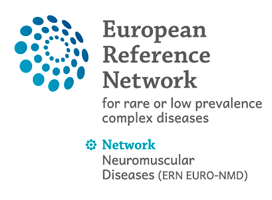06 Oct 2020
Nutrition management guideline for very-long chain acyl-CoA dehydrogenase deficiency (VLCAD): An evidence- and consensus-based approach
Authors:
S.C. Van Calcar a, M. Sowa b, F. Rohr c d, J. Beazer e, T. Setlock f, T.U. Weihe g, S. Pendyal h, L.S. Wallace i, J.G. Hansen a, A. Stembridge j, P. Splett k, R.H. Singh j
a
Oregon Health & Science University, Portland, OR, USA
b
CHOC Children’s, Orange, CA, USA
c
Met Ed Co, Boulder, CO, USA
d
Children’s Hospital of Boston, Boston, MA, USA
e
National PKU News, How Much Phe, LLC, Helena, MT, USA
f
Shodair Children’s Hospital, Helena, MT, USA
g
Children’s Mercy, Kansas City, MO, USA
h
Duke University Health System, Durham, NC, USA
i
University of Tennessee Health Science Center, Memphis, TN, USA
j
Emory University, Atlanta, GA, USA
k
University of Minnesota, St. Paul, MN, USA
The nutrition management guideline for very-long chain acyl-CoA dehydrogenase deficiency (VLCAD) is the fourth in a series of web-based guidelines focusing on the diet treatment for inherited metabolic disorders and follows previous publication of guidelines for maple syrup urine disease (2014), phenylketonuria (2016) and propionic acidemia (2019). The purpose of this guideline is to establish harmonization in the treatment and monitoring of individuals with VLCAD of all ages in order to improve clinical outcomes. Six research questions were identified to support guideline development on: nutrition recommendations for the healthy individual, illness management, supplementation, monitoring, physical activity and management during pregnancy. This report describes the methodology used in its development including review, critical appraisal and abstraction of
peer-reviewed studies and unpublished practice literature; expert input through two Delphi surveys and a nominal group process; and external review from metabolic physicians and dietitians. It includes the summary statements of the nutrition management recommendations for each research question, followed by a standardized rating based on the strength of the evidence. Online, open access of the full published guideline allows utilization by health care providers, researchers and collaborators who advise, advocate and care for individuals with VLCAD and their families and can be accessed from the Genetic Metabolic Dietitians International (https://GMDI.org) and Southeast Regional Genetics Network (https://southeastgenetics.org/ngp) websites.

